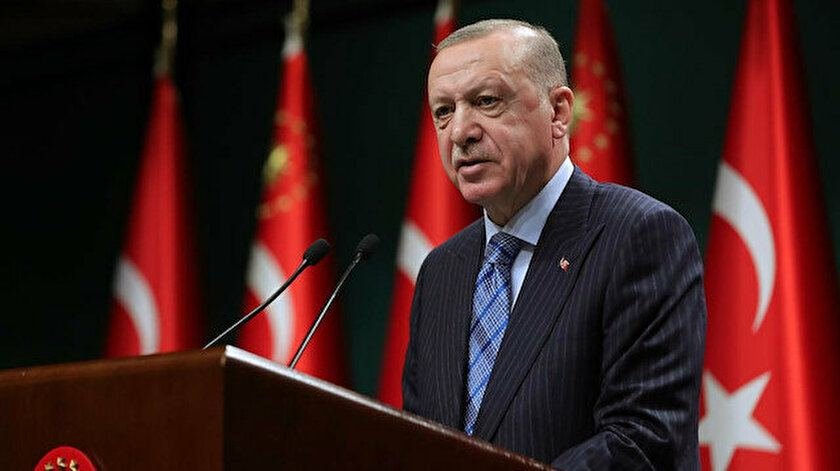

The United States withdrew its support from the Greece-Israel pipeline project because they realized that it was not economically viable, President Recep Tayyip Erdogan said, adding that the project cannot be planned without Turkey. TurkicWorld reports with reference to DailySabah
“They have carried out analyses and realized that there was nothing positive about this (project),” Erdogan told reporters on the presidential plane on his way back from Albania on Tuesday. He continued by noting that the cost calculations of the project also did not add up, which was one of the priorities of the U.S., “a country that takes all of its steps according to capital.”
Last week, the U.S. voiced its concerns over the planned subsea pipeline to provide natural gas from the Eastern Mediterranean to Europe.
“You cannot do this without Turkey,” Erdogan said, adding that the Israeli energy minister had presented a proposal to the then-Energy Minister Berat Albayrak and that Turkey and Israel could have forged a deal.
The president said Ankara and Tel Aviv may still reach an agreement by discussing the conditions of the deal, as he said he is speaking with President Herzog and that Prime Minister Naftali Bennett also keeps in touch.
Erdogan noted that Turkey’s approach to the Eastern Mediterranean issue is evident and that the country signed an agreement with Libya to make it official.
“We purchased four drilling vessels and two seismic survey vessels. Did we buy these for nothing? These vessels will be active in the Black Sea and the Mediterranean,” the president said, adding that Turkey aims to have the strongest infrastructure in this sphere.
Greece, the Greek Cypriot administration and Israel have approved an agreement for the EastMed pipeline, which has been in the planning stage for several years. The countries had aimed to reach a final investment decision this year and have the 6 billion euro ($6.82 billion) scheme completed by 2025 to help Europe diversify its energy resources.
"The American side expressed to the Greek side reservations as to the rationale of the EastMed pipeline, (and) raised issues of its economic viability and environmental (issues)," according to a diplomatic source.
Reports of the U.S. having reservations over the pipeline were published in Greek media.
They stand in contrast to comments as recently as December 2020 by then-U.S. Energy Secretary Dan Brouillette that the U.S. would continue to work with interested parties to "ensure that the infrastructure will be developed."
In October, Greek and Greek Cypriot administration vessels in the Eastern Mediterranean caused renewed tensions with Turkey. The research vessel Nautical Geo was sounding out whether and where a pipeline could be built on the seabed through which natural gas from Israel and Greek Cypriot administration could be piped to Crete and from there to central Europe. The Turkish Naval Forces Command pushed the research vessel back, as it had violated Turkey’s continental shelf, Defense Ministry sources said, while the Foreign Ministry described these explorations as "provocative activities" that endangered peace and stability in the Eastern Mediterranean. Ankara announced that it would take all "necessary steps on the ground" to stop this.
Turkey’s view is that any project that aims to sideline the rights of Turkey and the Turkish Republic of Northern Cyprus (TRNC) in the Eastern Mediterranean will be unsuccessful.
Greece has often been embroiled in tensions with its neighbor Turkey over a range of issues, from competing claims over hydrocarbon resources in the Aegean Sea to the demilitarization of the islands. Greece's burgeoning arms program is designed to counter Turkish rights in the Eastern Mediterranean, against which France is among the few European Union states to have offered public support in past months.
Turkey, which has the longest continental coastline in the Eastern Mediterranean, has rejected maritime boundary claims made by EU members Greece and the Greek Cypriot administration, stressing that these excessive claims violate the sovereign rights of both Turkey and the Turkish Cyprus. Both sides cite a range of decadeslong treaties and international agreements to support their conflicting territorial claims.